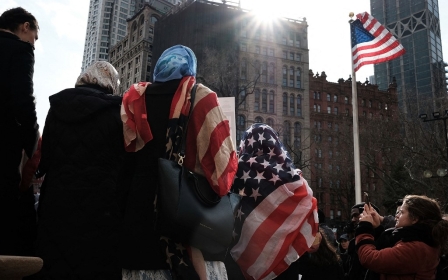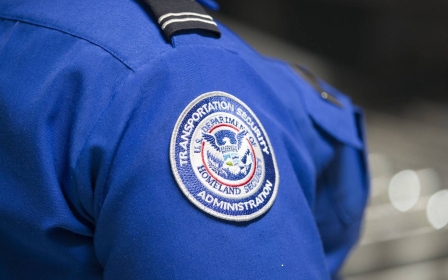US Muslim rights group sues FBI over 'secret' no-fly list

The New Jersey chapter of the Council on American–Islamic Relations (Cair), a civil rights organisation in the US, is suing the FBI, calling for an end to the “secret” government no-fly list.
“The result is that innocent people can languish on the watchlist indefinitely without real recourse. Muslims are told over and over that they need to integrate into American society, which they have been doing,” Dina Sayedahmed, the communications manager at Cair-NJ, said at the press conference in Newark, New Jersey, on Monday.
“But at the end of the day, they are still regarded in some ways as second-class citizens and denied due process. Muslims are a growing presence here in the US, but they still face negative consequences and they still face negative views from the public.”
In January, a Swiss hacker reportedly gained access to the no-fly list after a regional American airline left it on a data server and exposed it online.
The list, which was from 2019, contained about 1.5 million entries. Cair has said the contents showed it contained mostly Muslim and Arab names, showing that the FBI was disproportionately targeting the Muslim community.
New MEE newsletter: Jerusalem Dispatch
Sign up to get the latest insights and analysis on Israel-Palestine, alongside Turkey Unpacked and other MEE newsletters
Muslims have long fought against the use of the no-fly list, as it deprives people of their ability to travel without presenting evidence against them.
In 2020, the US Supreme Court ruled that Muslim Americans who were placed on the FBI's no-fly list after refusing to spy on their communities were allowed to sue individual FBI agents - who allegedly violated their religious freedom - for monetary compensation and damages.
In a unanimous decision, the court ruled in favour of lead plaintiff Muhammad Tanvir, a legal permanent resident of New York from Pakistan, who refused to spy on his Muslim community and was put on a travel blacklist as a result.
In May, Mohamed Khairullah, the Muslim mayor of Prospect, New Jersey, was barred from attending a White House Eid celebration with President Joe Biden.
Khairullah said he received a call shortly before arriving at the White House, informing him that he had not been cleared for entry by the Secret Service and could not attend the Eid celebration. No explanation was provided, he said.
He later found out that he was on the no-fly list.
“I call upon federal agencies to get rid of this racist list that contains mostly Arabic and Muslim names,” he said at the press conference on Monday.
“Instead, let’s create a system to protect our nation where there are checks and balances, making sure that there are no secret lists run by secret officials.”
“Let’s eliminate the hunches and for sure let's eliminate the profiling. Let’s create a system that truly guarantees for all Americans that they are indeed living in one nation.”
Khairullah’s story is just one of many. Selaedin Maksut, the executive director of Cair-NJ, shared a few stories of people that Cair-NJ has represented. A recent case was one of a young man in his mid-20s who came back from travelling in Turkey with his family.
He said that the man was detained for nearly an hour at Newark Airport. He was allegedly asked questions such as: "Have you been in contact with terrorist organisations?" He was pressured to give up his cell phone, which was then searched.
“He was made to feel as if he committed a crime, when in fact he did nothing wrong,” Maksut said.
“Their crime is just that they're on this unusually long list of names that is illegal and used by government agencies to profile its citizens.”
Middle East Eye delivers independent and unrivalled coverage and analysis of the Middle East, North Africa and beyond. To learn more about republishing this content and the associated fees, please fill out this form. More about MEE can be found here.





